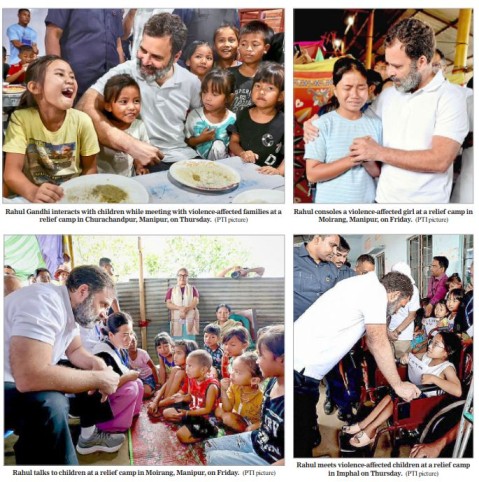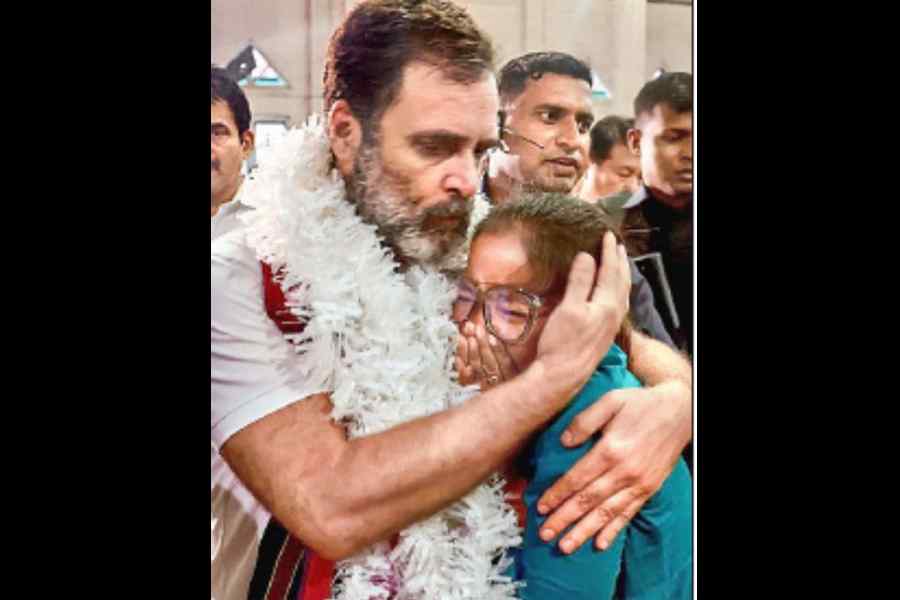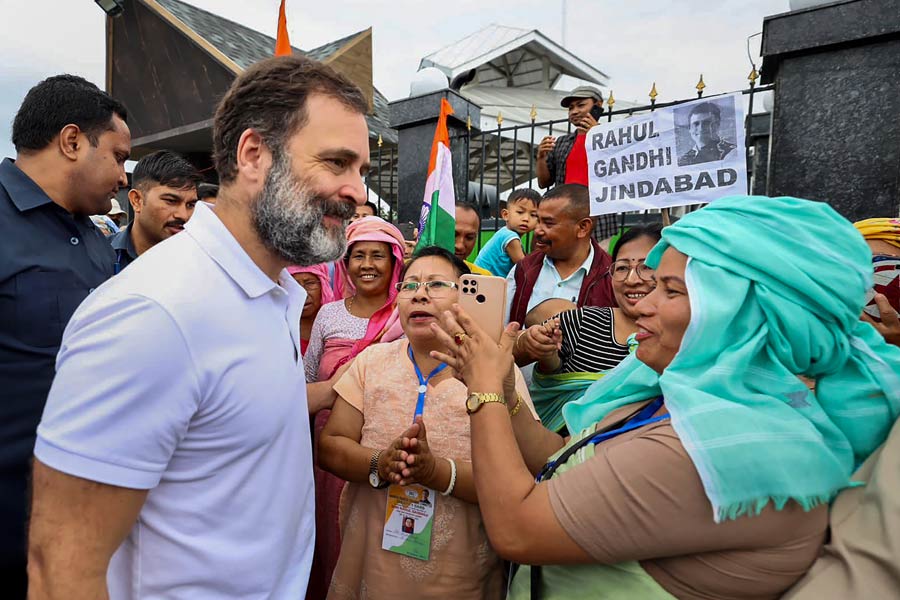Disqualified and thrown out of Parliament and barred from contesting the next election unless the higher judiciary intervenes, Rahul Gandhi was embraced by both the warring communities of Manipur — the Kukis and the Meiteis — in their intense yearning for peace.
People wept and hugged Rahul, narrating their agonising experience of the mindless violence and the many struggles at the relief camps, despite the knowledge that he had no power at his command and could offer nothing except the healing touch.
The leader who wields power, Narendra Modi, was seen on Friday cheerfully riding the Delhi Metro, talking to students about tea, momos and India’s rising power. Prime Minister Modi is yet to speak on the Manipur conflagration, let alone visit the state and offer a personal healing touch.
Rahul’s presence among the displaced people, nursing bruised souls, symbolised the same spirit that he epitomised during the Bharat Jodo Yatra — of rising above petty differences to unite and coexist harmoniously. The message too was the same: Let’s heal the wounds.

The people’s response, particularly that of the women compelled to seek shelter in temporary camps, left little doubt that a true leader doesn’t need any formal position to stay relevant.
Rahul refused to answer questions about the Prime Minister’s silence on Manipur, declaring that he had not gone there for politics and that all he wanted was a quick restoration of peace.
“I came here because I wanted to share the pain of the people of Manipur. It is a horrible tragedy that has taken place. Extremely sad and painful for all the people of Manipur and all the people of India as well,” the Congress leader said.
Wrapping up his two-day visit after meeting aggrieved people, civil society members and governor Anusuiya Uikey, Rahul said: “I went to the (relief) camps and met people of all communities. One of the things I would say to the government is that the basic amenities at the camps need to be improved. Food needs to be improved, medicines need to be supplied. And I would appeal to everybody in Manipur that we need peace. Peace is the most important thing.”
He added: “My strong appeal to everybody is that violence will not get anything for anybody. Peace is the way forward and everybody should now talk about peace and start moving towards peace. I am here to help in any way I can to bring peace to the state.”
Rahul posted a message on Facebook saying: “Hate and violence are a tragedy. We can deal with it together only with love and conversation.”
Rahul has always insisted that Indians need uninterrupted meaningful conversation, and divisive politics has to be defeated with love. That was the central theme of the Bharat Jodo Yatra when he led massive crowds across several states to cover almost 4,000km between Kanyakumari and Kashmir. The Congress sees Rahul’s Manipur visit as an extension of the Yatra as the purpose and the message were the same.
The Congress has repeatedly blamed the RSS-BJP’s divisive politics for the turmoil in Manipur, though Rahul stayed away from partisan political warfare during his visit. But sources said the people explained to him the background of the conflict and how the state administration vanished from the scene when violence erupted. That Rahul waswelcomed by both the majority Meiteis and the tribalKukis showed the goodwill he enjoys.
Whether the Prime Minister’s absence from the scene enhanced that goodwill or the people are now waking up to the fallout of divisive politics is difficult to guess.
But the people did deliver a message through the Bharat Jodo Yatra, turning out in large numbers in every state — from Kerala and Karnataka in the south to Maharashtra in the west to Madhya Pradesh and Rajasthan in central India to Punjab and Kashmir in the north. The Congress analyses this as a national yearning for peace and harmony.












